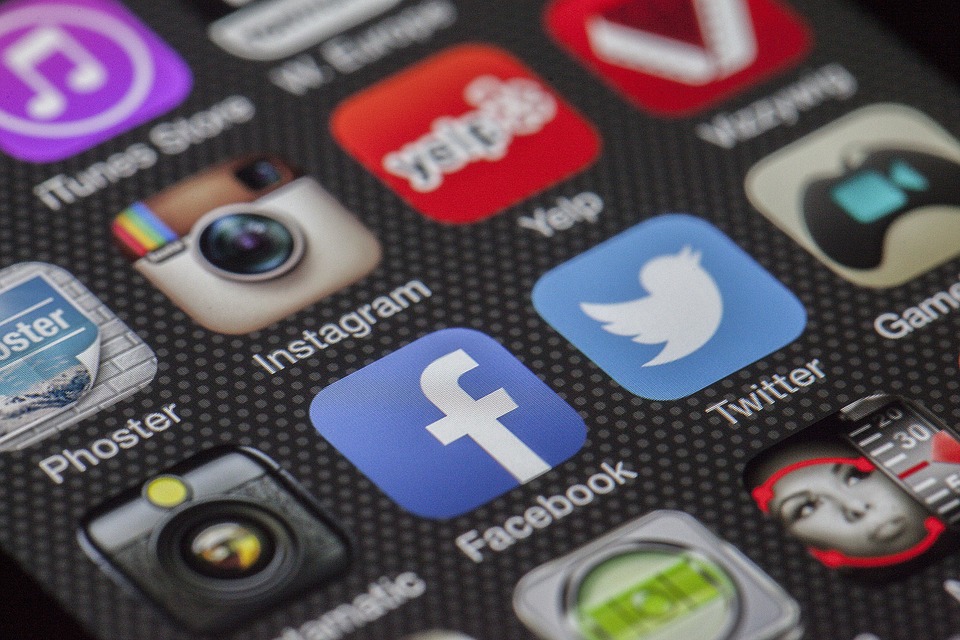
The importance of social media seems to be growing each day and with each generation. Just think about the last time you left your smart phone at home: most likely, the realization you forgot it left you feeling panicked, or at the very least, uncomfortable. Such a reaction begs the question: how did we ever survive before the existence of this technology? Magnify that by 100,000 for teenagers. For teens, the iPhone or Android smart phone is like a special new part of who they are. Try to take one away or deny access and watch the chaos unfold!
But is all of this technological access and exposure healthy for teens, their sense of self, their development into productive adults, or their mental well-being?
As in all things there must be balance: too much of anything isn’t good. According to the Pew Research Center, 92% of teens are online every day, with 24% online “almost constantly.” In observance of National Mental Health Month, we weigh the pros and cons of social media usage for teens and the potential implications this usage can have on their mental health:
Be Wary of the Cons of Social Media
With constant internet access, smart phones allow teens to literally have the world at their fingertips. Unfortunately, over-exposure to social issues and events that teens may not emotionally be ready to deal with or manage can lead to self-doubt, anxiety, depression and self-harm; especially for teens already struggling with mental health issues.
Bullying
Social media is often used to bully and mistreat peers. Clinical and developmental psychologist, Dr. Donna Wick, points out in the article, “How Using Social Media Affects Teenagers,” that “Kids text all sorts of things that you would never in a million years contemplate saying to anyone’s face.” This reality is then made more harmful by the fact that on social media, there is a general lack of overall privacy. In today’s world, everybody knows everything about whatever happened, whether it’s true or not. And once that information is out there, it doesn’t disappear and anyone can follow, stalk each other or misuse that information.
False Sense of Self-Worth
Constant usage of social media can also provide teens with a false sense of self-worth or lack thereof, as many teens base their personal value on the number of followers they have and who those followers are rather than looking to their own unique abilities and qualities to define their self-worth. Couple this with the fact that “kids today are getting actual polling data on how much people like them or their appearance via things like ‘likes’.” You can see how such comparison of one’s own life to the highlight reel of another’s could lead to intense feelings of insecurity, doubt or jealously.
Poorer Communication Skills
Though it sounds ironic, it is not unrealistic to wonder, does social media actually lead us to be unsocial? Teens today are learning most of how to communicate from behind a screen rather than in interpersonal conversations with actual people. This can result in a lack of basic direct communication skills, an inability to listen for tone/emotion non-verbals and a lack of understanding of physical spacing—all of which are necessary to hold normal face to face conversation. Social media neither requires nor offers the opportunity to practice those skills.
Distracts from Schoolwork
Social media can distract from school work as many reports state that an average teen spends nearly 9 hours a day on social media. This can also impact the amount of sound academic information teens actually acquire. A recent research study conducted by Stanford found that an alarming number of young people surveyed were unable to accurately discern whether a source was credible or not. Ultimately, this type of mass misinformation can not only prove detrimental to student education, but also to society at large.
It’s Not All Bad! The Pros of Social Media
Despite the pitfalls of social media, it does have many upsides. For one, it can be fun! But that’s not all. Social media has many benefits, including:
Helping Local & Worldwide Collaboration
The International Telecommunication Union reports that social media has helped teens collaborate with other teens in support of a particular mission or topic. No longer is the problem too big or too far away to do anything about it! They are more aware of different social issues important to them and feel empowered by the masses of their peers to get involved and make a difference.
Growing & Maintaining Friendships
It allows for the growth of contacts and friendships, as well as the ability to reunite with like-minded people that you may not meet during regular daily interactions, for example: following favorite celebrities, sports stars, or heroes.
It serves as a tool for teens to feel heard and allows an avenue for them to share inspiring stories or use their creativity on a larger platform than would otherwise be available.
Social media has replaced the outdated necessity for 3-way phone calls and passing notes. Now social information, as well as academic, group work and even communication with teachers, is more readily available. Overall education is no longer confined to the classroom!
Access to Valuable Help
The benefit of and access to self-help groups on social media have offered the option of personal, private support and assistance with life’s struggles. Teens can learn from others that have been in their shoes and be directed to organizations that offer credible, helpful information on topics important to them such as:
- Relationships
- Trouble with parents
- Depression
- Stress
- Drugs
- Alcohol
- Sex
It seems that the bottom line for whether social media is beneficial or detrimental to teen’s mental health is ultimately dependent on in what ways and how often it is used. Teens still need to develop a sense of accountability, self-esteem and support outside of social media. That way, their use of social media can fortify them in the healthy formation of their own identity versus trying to define oneself or address tough issues based on the possibly risky faith in social media to create it for them.
